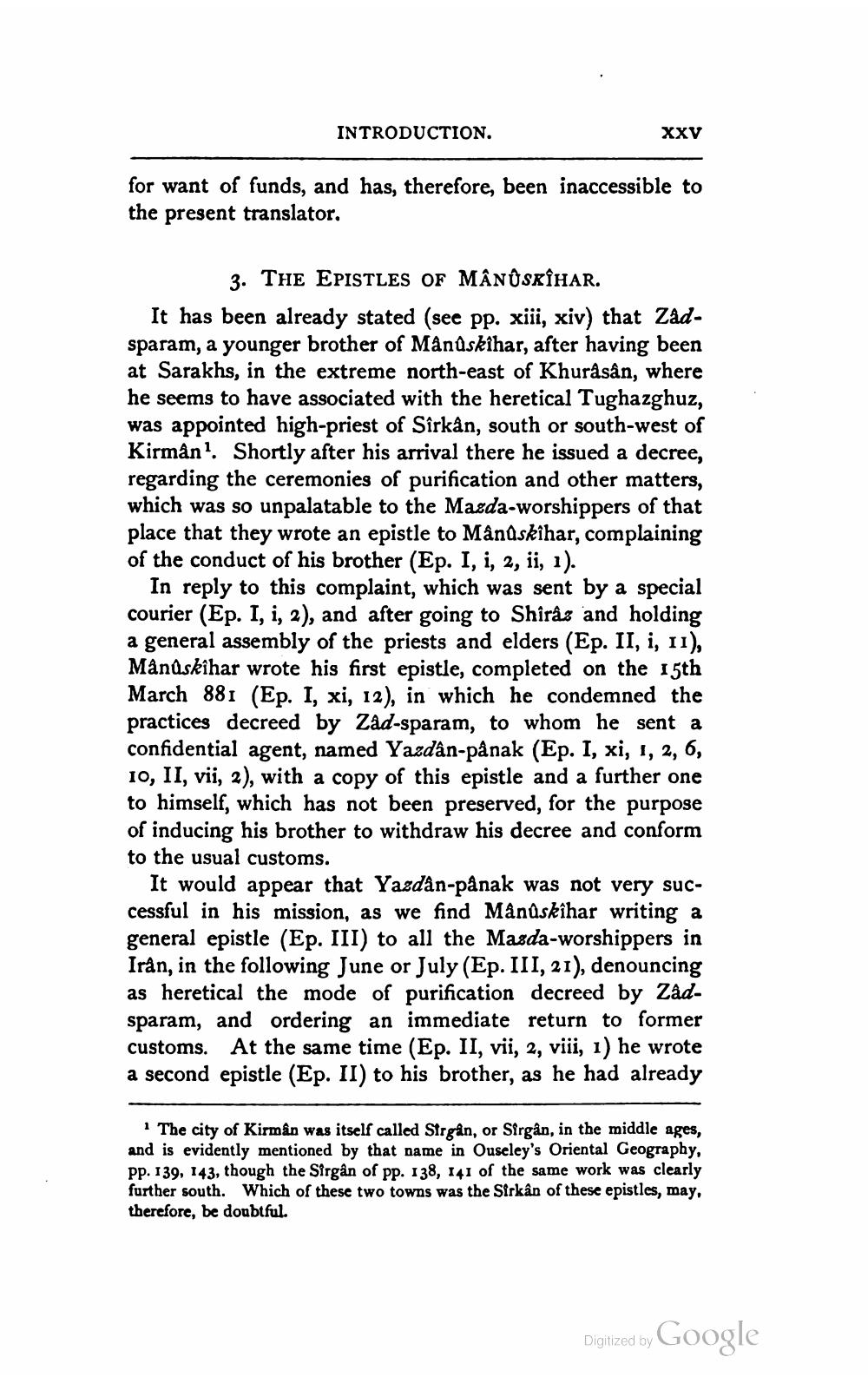________________
INTRODUCTION.
XXV
for want of funds, and has, therefore, been inaccessible to the present translator.
3. THE EPISTLES OF MÂNÜSKÎHAR. It has been already stated (see pp. xiii, xiv) that Zadsparam, a younger brother of Manùskihar, after having been at Sarakhs, in the extreme north-east of Khurasan, where he seems to have associated with the heretical Tughazghuz, was appointed high-priest of Sîrkân, south or south-west of Kirman'. Shortly after his arrival there he issued a decree, regarding the ceremonies of purification and other matters, which was so unpalatable to the Mazda-worshippers of that place that they wrote an epistle to Mânùskihar, complaining of the conduct of his brother (Ep. I, 1, 2, ii, 1).
In reply to this complaint, which was sent by a special courier (Ep. I, i, 2), and after going to Shiraz and holding a general assembly of the priests and elders (Ep. II, i, 11), Mánaskihar wrote his first epistle, completed on the 15th March 881 (Ep. I, xi, 12), in which he condemned the practices decreed by Zad-sparam, to whom he sent a confidential agent, named Yazdân-pânak (Ep. I, xi, 1, 2, 6, 10, II, vii, 2), with a copy of this epistle and a further one to himself, which has not been preserved, for the purpose of inducing his brother to withdraw his decree and conform to the usual customs.
It would appear that Yazdân-pânak was not very successful in his mission, as we find Månûskihar writing a general epistle (Ep. III) to all the Masda-worshippers in Iran, in the following June or July (Ep. III, 21), denouncing as heretical the mode of purification decreed by Zadsparam, and ordering an immediate return to former customs. At the same time (Ep. II, vii, 2, viii, 1) he wrote a second epistle (Ep. II) to his brother, as he had already
The city of Kirman was itself called Strgån, or Sirgån, in the middle ages, and is evidently mentioned by that name in Ouseley's Oriental Geography, Pp. 139, 143, though the Sirgân of pp. 138, 141 of the same work was clearly further south. Which of these two towns was the Sirkân of these epistles, may, therefore, be doubtful.
Digitized by Google




